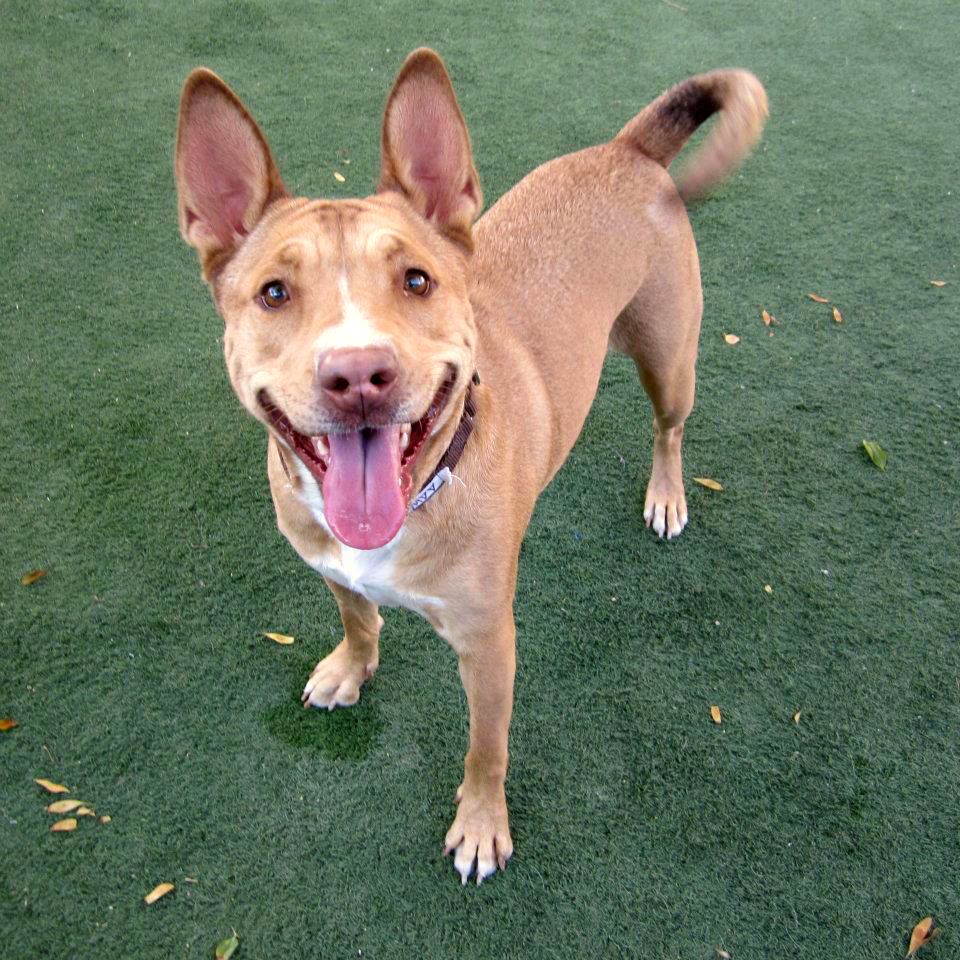Results of study by ASU researchers support pilot program by Arizona Animal Welfare League
PHOENIX – The Arizona Animal Welfare League (AAWL) is removing breed labels for adoptable dogs at its shelter to help potential adopters focus on the dog’s personality and how well it fits with their lifestyle, rather than what breeds make up the dog.
“We have always talked about how you fall in love with the dog, and that, while breeds contribute to a dog’s personality, it is just one part of who a dog is,” says Michael Morefield with AAWL. “We believe we are the first shelter in Arizona to eliminate breed labels on kennel cards for all of our adoptable dogs.”
Potential adopters can still see what breed or breeds adoptable dogs are likely to be from their profiles on the shelter’s website, at www.aawl.org.
The no-kill shelter started the pilot program in hopes it will help some dogs get adopted more quickly. “We think this approach will encourage people to choose to meet dogs from a broader selection,” adds Morefield. “We reveal everything we know about a dog during our matching process, to ensure that what we know about an animal’s temperament, behavior, activity level and assumed breed are a good match for the family at all levels.”
The AAWL pilot comes just as a new study by researchers from Arizona State University is released.
The study, by Lisa Gunter and colleagues, found that dogs labeled as pit bulls wait three times as long to be adopted from shelters than “look-alikes” that are not labeled or labeled as other breeds. The study, entitled, “What’s in a Name? Effect of Breed Perceptions & Labeling on Attractiveness, Adoptions & Length of Stay for Pit-Bull-Type Dogs,” was published March 23 in the open-access journal PLOS ONE.
Working with AAWL and a few organizations outside of Arizona, Gunter and her associates conducted four related studies to determine how perceptions of breeds and differences in labeling can impact outcomes for shelter dogs.
While previous research suggested certain types of dogs take longer to be adopted from shelters, it was unclear how much the breed identification influenced adoption decisions. The authors of this research initially assessed perceptions of pit bull dogs compared to other breeds. They then analyzed the effect of the pit bull label in dog shelters, comparing the perceived attractiveness and length of stay in shelters between dogs labeled as pit bull breeds and look-alikes that were labeled differently.
They found that pit bull breeds were perceived as less adoptable than other breeds such as Labradors, because they were considered less friendly and more aggressive.
“We were surprised how very similar-looking dogs sometimes get labeled ‘pit bull’ and other times as something completely different,” says Gunter. “These dogs may look and act the same, but the pit bull label damns them to a much longer wait to adoption.”
The authors say their study suggests that “removing breed labels is a relatively low-cost strategy that will likely improve outcomes for dogs in animal shelters.”
AAWL Previously Helped Test Dog Adoptability with DNA Results
Last year, Mars Veterinary selected AAWL for a first-of-its-kind program in which shelter staff took cheek swabs for DNA testing from dogs when they arrived at the shelter. After testing, the dog’s DNA profile was printed out to be placed at the kennel, in hopes that confirming the breed makeup would help potential adopters decide on a dog.
Final results of this project are still pending, but Morefield says that it did show shelter staff that their “best guess” as to the dog’s background was often inaccurate.
However, he adds that “nothing that we learned, one way or another, changed the dog.”
Based on the shelter’s experience and preliminary results of the ASU study, the shelter started its pilot program of removing breeds from kennel cards about two weeks ago. Other shelters have started removing the “pit bull” label, but AAWL believes it is the first shelter in the state to stop identifying all its adoptable dogs by breed.





